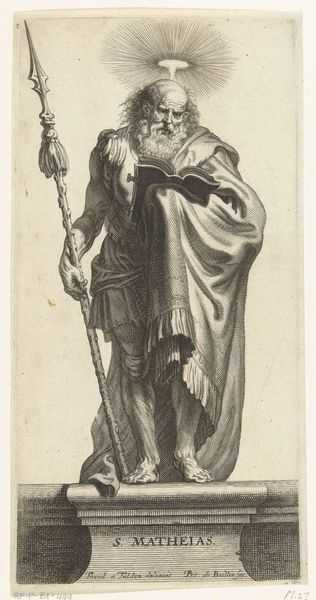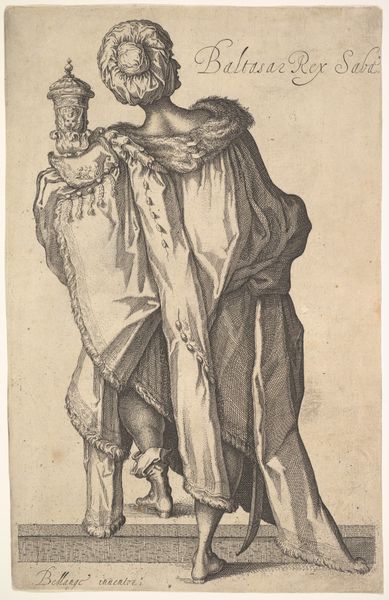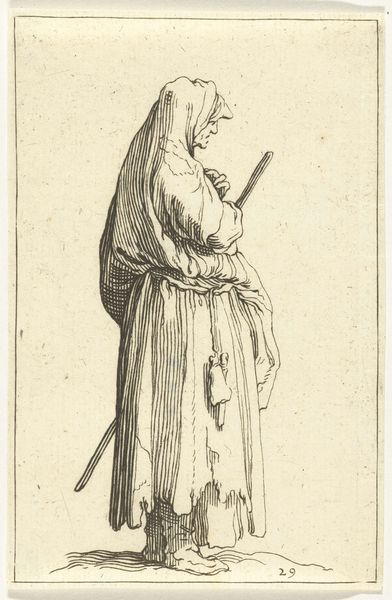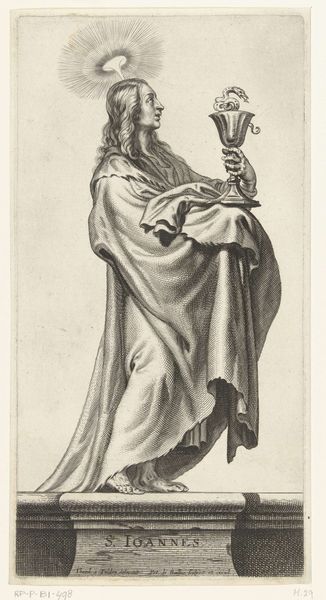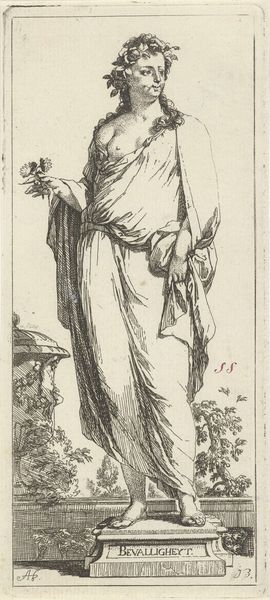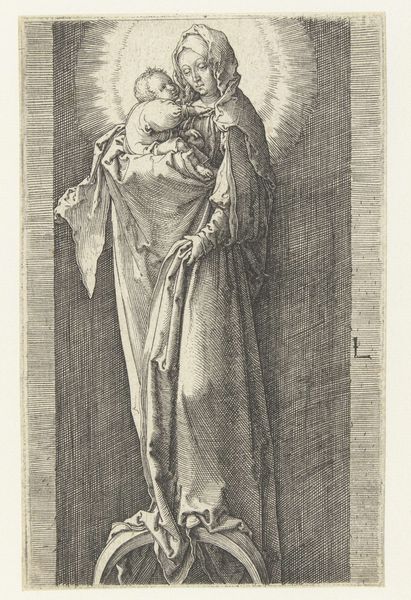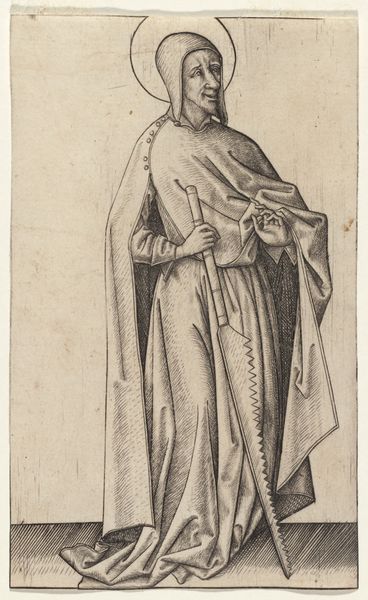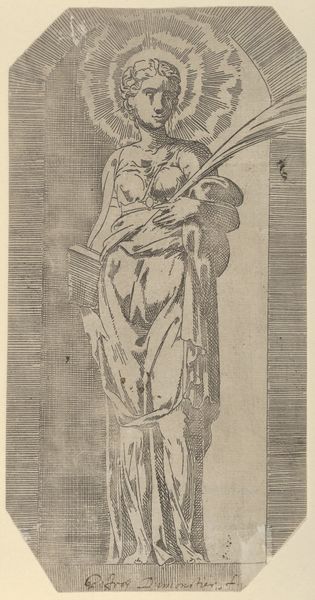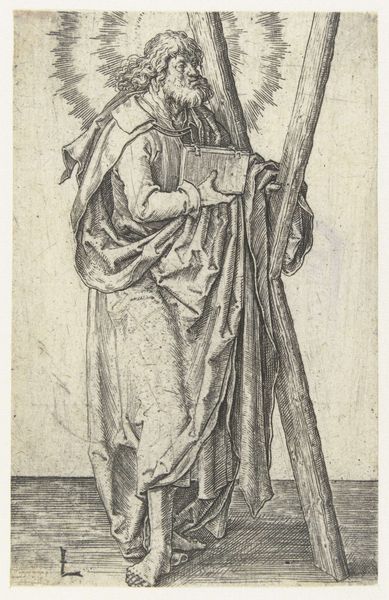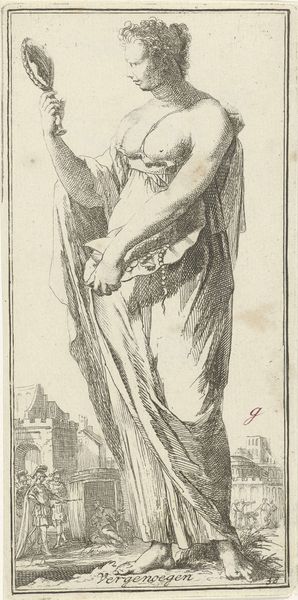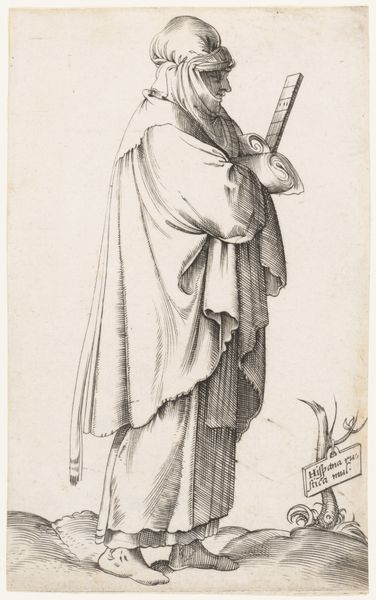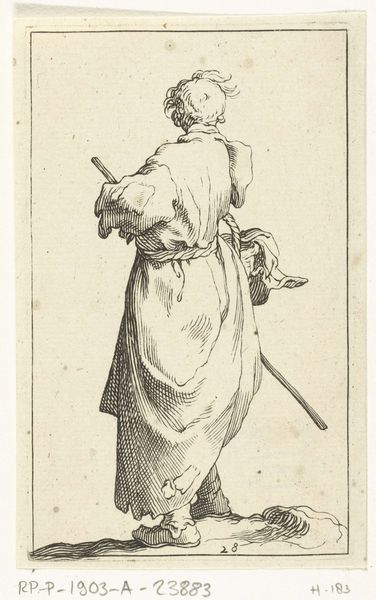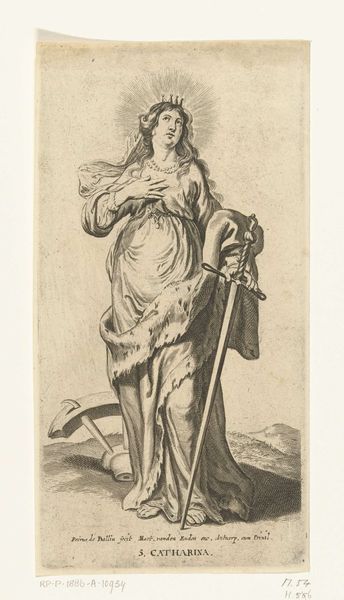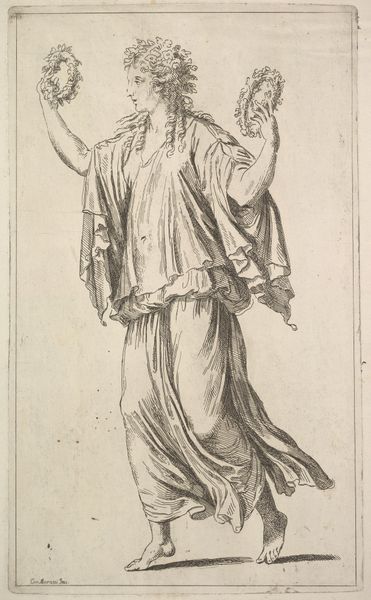
drawing, paper, ink
#
portrait
#
drawing
#
baroque
#
mechanical pen drawing
#
pen illustration
#
pen sketch
#
cartoon sketch
#
paper
#
personal sketchbook
#
ink
#
ink drawing experimentation
#
pen-ink sketch
#
sketchbook drawing
#
genre-painting
#
storyboard and sketchbook work
#
sketchbook art
#
realism
Dimensions: height 120 mm, width 80 mm
Copyright: Rijks Museum: Open Domain
Curator: Here we have Frederick Bloemaert's "Oude boerenvrouw," or "Old Peasant Woman," a drawing rendered in ink on paper, created sometime after 1635. It's part of the collection at the Rijksmuseum. What are your initial impressions? Editor: Melancholy. Absolutely awash in the textures of hardship. I find myself drawn to the downcast eyes and the way the lines seem to mimic the wrinkles etched into her face. Curator: The artist really emphasizes line as both contour and texture. Look at the cross-hatching used to create the folds of her clothing. Notice how that detailing implies a coarse, heavy fabric appropriate for the working class. Editor: And that fabric! The rips near the bottom are so visceral, practically screaming her economic status. This isn't just a drawing of an old woman; it’s a stark portrayal of labor and the passage of time etched on a body. There's an unflinching rawness here that feels…radical. Curator: Given the social context of the time, these kinds of "genre paintings" gained traction as ways of depicting everyday life and moralizing narratives. Bloemaert might have intended it to elicit empathy, or even serve as a commentary on the social structures that perpetuate poverty. Editor: I see that, the undercurrents of societal critique. But what stays with me is that single bare foot. A deliberate, exposed vulnerability. Did she choose that, or was it simply forced on her by circumstances? That detail elevates this from simple genre portrait to a symbol of human resilience amidst oppression. It hits you right in the gut, doesn't it? Curator: The very materiality speaks of accessibility; ink and paper were far more democratic mediums than, say, oil paints on canvas. So its circulation and consumption among a broader audience makes a statement too. Editor: Yes, art reaching beyond the elite patrons. You feel a real person looking back at you. Something to carry with you, isn't it? Curator: Indeed, a small drawing, but echoing with social and personal weight.
Comments
No comments
Be the first to comment and join the conversation on the ultimate creative platform.
